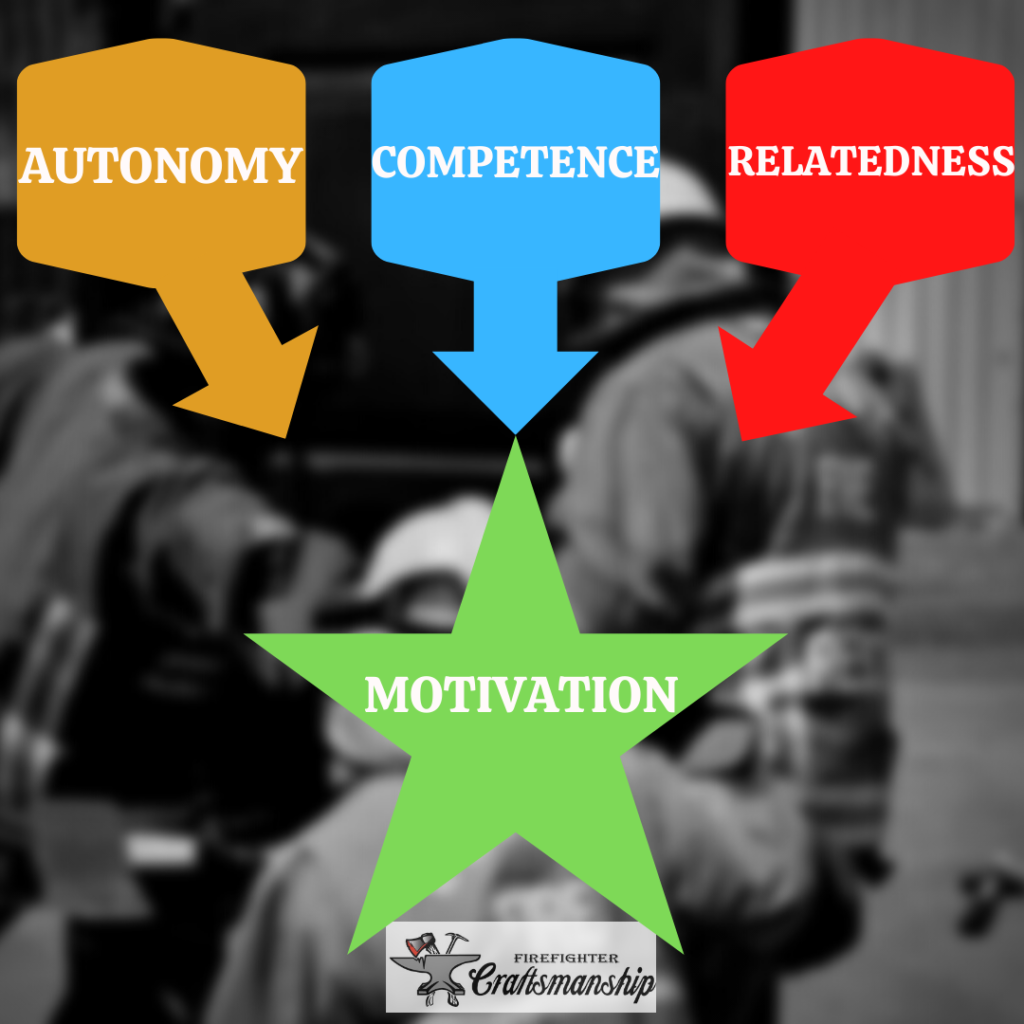Self Determination Theory and how to maximize your effectiveness using it!
In the human performance psychology world a very common theory that is assessed and discussed at nauseam is Self Determination Theory (SDT). This theory is based around the assumptions that people are generally on a quest to not suck, are active participants in their own stories and want to grow through new challenges, learning and application. This progress could include work, life, hobbies etc. If we assess and tap into the power of SDT then we can not only optimize our own progress but we can also more effectively work within and lead the teams and people around us. This can include up the chain of command as much as down the chain of command and therefore is not tied to any sort of rank structure.
Self Determination Theory is based around 3 core principles that power human motivation and ultimately the results achieved.
1. Autonomy
2. Competence
3.Relatedness
Autonomy…What the heck does that even mean? Simply put it means that a person really likes it when an idea comes from themselves or the motivation is self created. An example of this would be when you’re really tired of feeling sluggish and half speed so you decide to eat cleaner, work out 4 times a week and get 20 more minutes of sleep than you typically do by going to bed 20 minutes earlier. You might have heard of “intrinsic motivation” before and for sake of this post it essentially is the same thing as autonomy.
Competence is a concept that we talk a whole lot about especially in the fire service. We focus dang near all of our effort on basic skills training and you’ll hear endless banter at the kitchen table around competence and the correct way to perform on an actual emergency scene. Basic skill development is absolutely awesome and when you reap the rewards of hard focused training on the drillground it’s hard to beat how someone feels in this circumstance.
Relatedness ties directly into the team environment. How do you function and operate within the team itself? Do you feel like those around you care for you and support you in the never ending quest for success? I’m sure most of us have been part of high performing teams and part of underperforming teams as well. It’s safe to assume that we’d much rather be involved and surrounded by high performers than a bunch of knuckleheads who sit around all day, talk smack, aren’t competent at their jobs, and have created an environment that no one wants to be a part of. This could also include people who are extremely competent at their jobs but are no fun to be around because of their attitudes and approach. What do you relate to and what environment are you creating that makes it relatable to others within it? Relatedness is why building the right culture is so impactful.
People are generally on a quest to not suck
Within SDT there are 6 mini theories on how to most effectively achieve the three basic tenets for ultimate effectiveness (Autonomy, Competence & Relatedness). We’re not going to break into these here because this post would turn into a 9 billion page novel! Instead let’s pass the buck back to you to assess yourself and your teams that you are a member of or are tasked to lead.
Take a good hard look at Autonomy, Competence & Relatedness and find the strengths and weaknesses you personally have within these three areas. For example, are you struggling to stick to a tactical fitness regiment even though you know it’s a must for your job? I bet you can find deficiencies in one of these areas if not all of them that is actually a root cause for poor motivation and follow through. They might look like:
Autonomy: I just really can’t find a style of working out that gets me excited. It’s all so boring… I know I need to and my department values it but I just can’t find something I really enjoy.
Competence: I really have absolutely no idea what I’m doing and don’t know what movements are relative for my job. Reps and sets? How many days per week? I have no clue how to get the GAINS!
Relatedness: I’m out there by myself every time I work out and the rest of the crew is sitting in the recliners watching the newest episode of Alone…
If you are tryin to find the motivation or the root cause why something isn’t working out as intended start by using this simple process to unpack it. We think it’ll be easier to identify the key areas that are leading to both failure and success. You can then apply this to everything you do and level up your game. Leadership, promotional processes, diet, sleep, teamwork, cleaning your house…the possibilities are truly endless. To help we created this downloadable template for you to help capture your wins and losses.
References: Horn, T. S., & Smith, A. L. (2019). Advances in Sport and Exercise Psychology (Fourth ed.). Human Kinetics.







